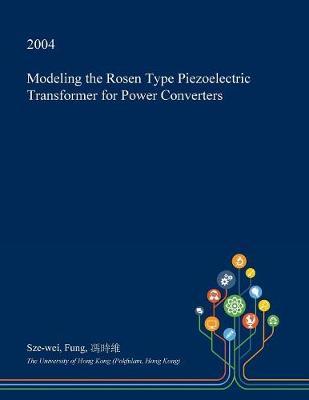Overview
This dissertation, Modeling the Rosen Type Piezoelectric Transformer for Power Converters by Sze-wei, Fung, 馮時維, was obtained from The University of Hong Kong (Pokfulam, Hong Kong) and is being sold pursuant to Creative Commons: Attribution 3.0 Hong Kong License. The content of this dissertation has not been altered in any way. We have altered the formatting in order to facilitate the ease of printing and reading of the dissertation. All rights not granted by the above license are retained by the author. Abstract: Abstract of thesis entitled Modeling the Rosen Type Piezoelectric Transformer for Power Converters Submitted by Fung Sze Wei for the degree of Master of Philosophy at The University of Hong Kong in August 2004 The transformer is a core element in all switching power converters, and the piezoelectric transformer is attractive because of its thin and simple structure. However the piezoelectric transformer has a very different operating principle. Electrical energy is converted to mechanical vibration, which is then converted back to electrical energy. Many issues must be addressed before the thin piezoelectric transformer can work properly like its magnetic counterpart. One such issue is the resonant behavior. It is very important to control the switching frequency at the resonant peak in order to produce high gain. In this study an appropriate control algorithm is developed, and a microprocessor system is built to put it into practice. Since the piezoelectric transformer is a relatively new entrant in the field of electrical energy conversion, no suitable model has yet been developed for wide variable loads. The popular Rosen type piezoelectric transformer has a high step-up ratio. This is good for high voltage converters with Cold Cathode Fluorescent Lamps (CCFL), of the kind currently found in color LCD displays. The brightness of the lamps is usually variable, providing an example of a typical variable load. The performance of the piezoelectric transformer (PT) is highly dependent on its load and switching frequency. Conventional models cannot provide sufficient modeling in a wide load range. In this study a modified model is built. A fictitious resistor is employed to modify the conventional model, producing a good match according to measurements. Moreover, this model is highly compatible with the conventional model and is easy for PSPICE―the industrial standard simulation tool―to simulate. This model also allows for the simulation of several piezoelectric transformers connected in parallel, thus enabling more output power. The behavior of PTs that are connected in parallel was observed both by experiment and by simulation, and experimental measurements and computer simulations have validated this new model. DOI: 10.5353/th_b3145122 Subjects: Piezoelectric transducers
Full Product Details
Author: Sze-Wei Fung ,
馮時維
Publisher: Open Dissertation Press
Imprint: Open Dissertation Press
Dimensions:
Width: 21.60cm
, Height: 0.50cm
, Length: 27.90cm
Weight: 0.245kg
ISBN: 9781361205518
ISBN 10: 1361205512
Publication Date: 26 January 2017
Audience:
General/trade
,
General
Format: Paperback
Publisher's Status: Active
Availability: Temporarily unavailable

The supplier advises that this item is temporarily unavailable. It will be ordered for you and placed on backorder. Once it does come back in stock, we will ship it out to you.



